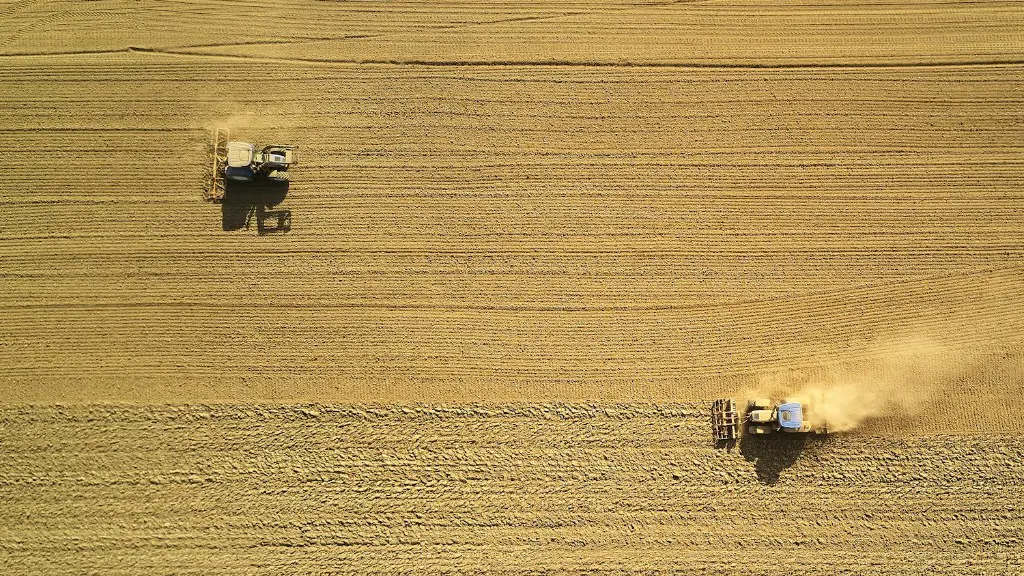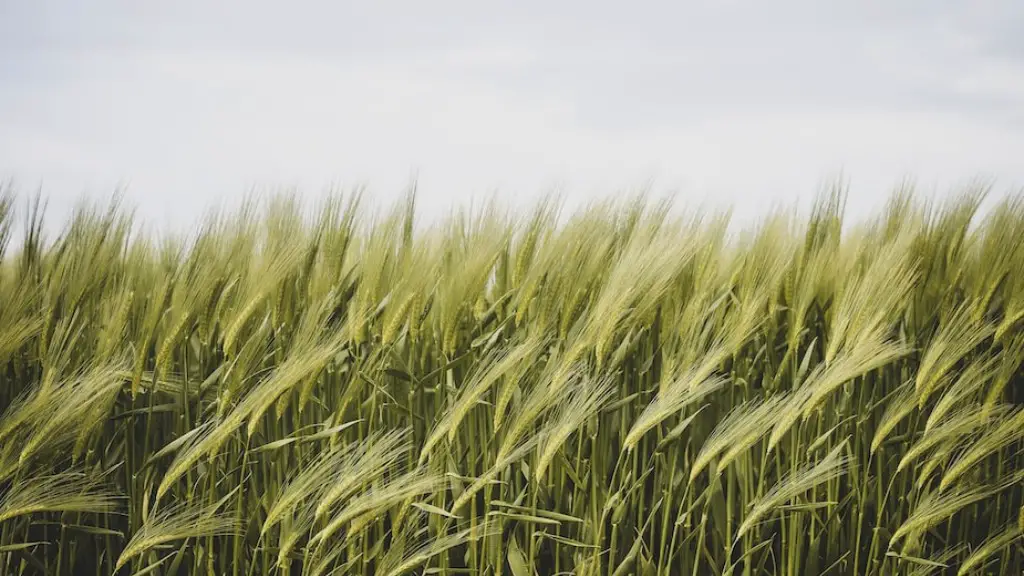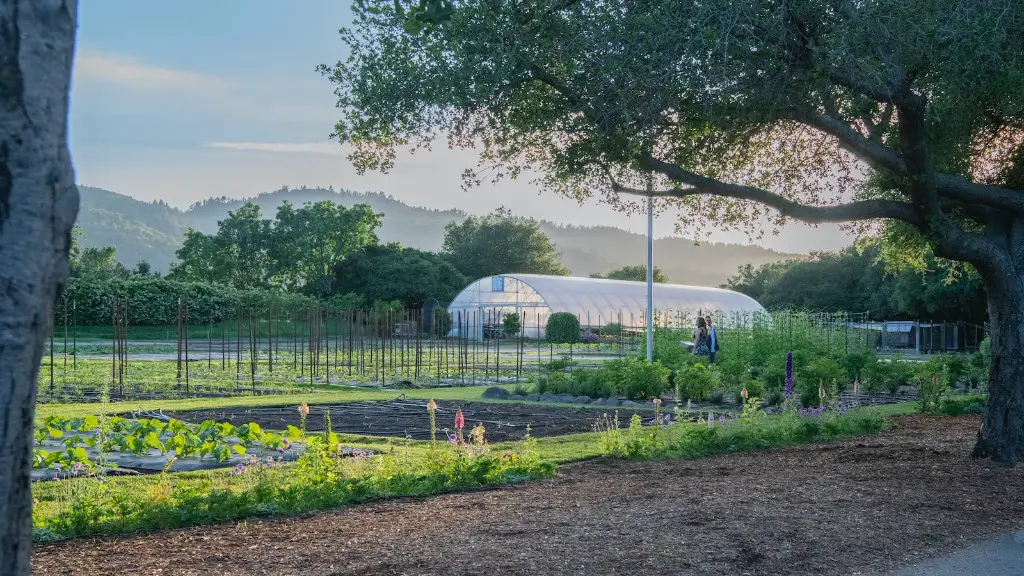Agriculture plays a significant role in the livelihood of many. It is essential for our survival. Agriculture is one of the oldest professions and continues to be one of the most important industries. Agriculture provides us with food, clothing, fuel, and other resources necessary for survival. Agriculture has become even more important in recent years due to the population increase, technological advancements and climate change. Here are the reasons why agriculture is important in our lives.
Firstly, agriculture contributes to food security. Growing enough food to meet the needs of a growing population is essential in order to sustain life. Agriculture is the most efficient way to produce food. Growing food is a major source of income that supports the well-being of people living in rural communities. Additionally, agriculture also helps to reduce poverty as it provides jobs and income.
Secondly, agriculture is also important to the environment. The practice of sustainable agriculture protects the environment by preventing soil erosion and conserving natural resources such as water. By farming sustainable crops, farmers are able to reduce the risk of crop failure, ensure food security and combat climate change.
Thirdly, agriculture is important for the economy. Agriculture is a major driver of global economic growth. It generates income for farmers and producers, provides employment opportunities and stimulates economic activities in related industries. In addition, agriculture is an important source of tax revenue for governments.
Fourthly, agriculture is vital for human health and nutrition. The quality and quantity of food produced by agriculture are crucial for a healthy diet. A balanced diet, rich in vitamins and minerals is essential for human health. Agriculture also helps to combat hunger and malnutrition by providing people with healthy and nutritious food.
Agriculture As an Investment
Agriculture is also an important form of investment. Investing in agricultural land, commodities and livestock can provide a stable source of income. For instance, investing in farmland can generate rental income and increase the value of the land over time. Investing in commodities such as crops and livestock can provide a steady stream of income. Investing in agriculture also helps to reduce the vulnerability of small-scale farms to market fluctuations.
In addition, investing in agricultural research and development can lead to significant improvements in agricultural productivity. Through research, farmers can gain access to new and improved methods of farming, enabling them to increase their yields and reduce the costs associated with farming. Furthermore, investing in agricultural technology can help to reduce environmental degradation and conserve natural resources.
Agricultural Education
Another important aspect of agriculture is agricultural education. Learning about agriculture, from crop production to market economics, is essential for farmers and other agricultural workers. Through agricultural education, farmers can gain knowledge and skills that will enable them to make informed decisions in their work, and increase the efficiency and productivity of their land.
Agricultural education also helps to promote agricultural innovation. Learning about the latest trends in agriculture can help farmers to adapt to the changing environment and use new technologies to improve their yields. Agricultural education can also help farmers to develop new market strategies, giving them the opportunity to diversify and increase their income.
Agricultural Financing
Finally, agricultural financing is essential in order for small-scale farmers to access the capital they need for their operations. Access to loans, grants and other forms of financing can enable farmers to purchase land, financing inputs and improve their production techniques. By providing farmers with access to capital, agricultural financing helps to ensure that agriculture remains profitable and sustainable.
In conclusion, agriculture is essential for our survival and well-being. It is vital for food security, environmental protection and economic growth. Investing in agricultural land, research and education can help to increase agricultural productivity and reduce vulnerability to market fluctuations. Additionally, access to agricultural financing can enable farmers to access the capital they need for their operations. Agriculture is a vital component of our lives and should be supported and encouraged to ensure our future sustainability.
Improved Technologies in Agriculture
Improved technologies in agriculture can help to reduce costs, increase yields and increase the efficiency of agricultural production. Advances in technologies such as precision agriculture, automated irrigation systems and GPS guidance systems can optimize production and help farmers to increase their yields. The use of improved technologies in agriculture can also help farmers to monitor their crops, soil and livestock and detect potential pest problems and diseases early, which can help to control damage and prevent the spread of disease. Improved technologies in agriculture can also help to conserve natural resources and reduce the environmental impact of agricultural activities.
In addition, improved technologies in agriculture can increase access to markets and facilitate the efficient exchange of goods between farmers and buyers. New innovations such as mobile apps, online marketplaces and messaging tools can make it easier for farmers to access buyers and sell their products around the world. Improved technologies can also enable farmers to track the quality, quantity and prices of their crops in real-time, giving them the opportunity to adjust their production in response to changing market conditions.
Finally, improved technologies in agriculture can help to reduce the risk of financial losses for farmers, particularly those in developing countries. By providing farmers with access to real-time data on market conditions, improved technologies can help farmers to reduce their exposure to potential risks, ensuring that their investments are profitable. Improved technologies in agriculture can also enable farmers to manage their land more efficiently, reducing wastage and increasing the productivity of their operations.
Agriculture and Climate Change
Agriculture is also an important factor in addressing climate change. Agriculture is one of the most carbon-intensive sectors and is responsible for a significant share of greenhouse gas emissions. Climate change is already making it more difficult for farmers to produce crops. Crops are vulnerable to extreme weather events such as droughts and floods, which can cause losses in crop yields and reduce the quality of produce.
In order to manage the risks of climate change, farmers must adopt a range of sustainable practices such as soil conservation, water management and the use of renewable energy sources. Sustainable agricultural practices can help to reduce the impact of climate change on crop fitness and yields and can also reduce the amount of greenhouse gas emissions associated with agricultural production. Additionally, sustainable agriculture can also help to protect natural resources, ensure food security, and reduce soil erosion.
Climate mitigation strategies such as agroforestry and agroecology can also help to reduce emissions and mitigate the impacts of climate change. Agroforestry involves planting trees alongside crops which can reduce the amount of water and energy needed for cultivation. Agroecology focuses on preserving and improving the functions of natural ecosystems and using sustainable agricultural practices to produce food. These strategies can help to reduce greenhouse gas emissions and protect natural resources, providing a more sustainable and resilient approach to agricultural production.
Agricultural Policies and Regulations
Agricultural policies and regulations are essential in order to foster a sustainable and resilient agricultural sector. Governments must set policies that promote efficient land use and reduce the environmental impacts of agricultural production. Governments must also create regulations that protect farmers from volatile markets and ensure farmers’ access to necessary resources, such as land and water.
In addition, governments must set regulations that protect farmers from unfair trading practices. Regulations should also ensure that farmers are adequately compensated for their labor and guarantee minimum wages for farm workers. By setting fair and effective policies and regulations, governments can ensure that agriculture is a viable and sustainable industry for current and future generations.
In conclusion, agriculture is essential for our survival and well-being. Improved technologies, climate change mitigation strategies and effective agricultural policies and regulations are key elements of a successful and sustainable agricultural sector. By supporting and encouraging the development and implementation of these policies and technologies, we can ensure a future of secure and resilient food production.




